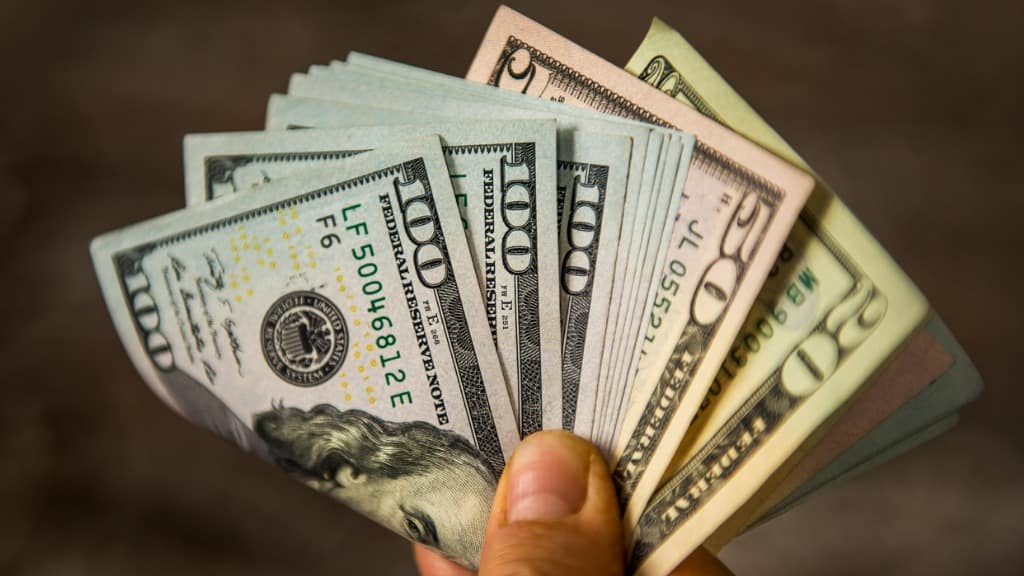
CLICK HERE TO JOIN OUR WHAT’S APP GROUP
From Reserve Currency to Risk Factor? Robinson Questions America’s Willingness to Undermine the Dollar
Professor Justin Robinson, Principal of the University of the West Indies Five Islands Campus, has raised concerns that the United States may be jeopardising one of its greatest economic advantages—the global dominance of the US dollar—in pursuit of short-term trade and fiscal gains.
Delivering the keynote address at the opening of the 26th Annual SALISES Conference, Robinson unpacked what he described as a radical shift in US economic strategy aimed at resetting the global trading system.
The strategy, rooted in a policy framework authored by economist Steven Miran, now chair of the US Council of Economic Advisers, outlines aggressive trade tools and debt restructuring measures designed to restore American manufacturing and competitiveness.
But Robinson warned that the approach, which includes pushing foreign holders of US debt to convert short-term Treasury bills into ultra-long-term or even perpetual bonds, risks eroding investor confidence in the dollar and destabilising global capital flows.
“If foreign central banks are asked to swap their short-term holdings for instruments that may never mature, what message does that send?” he asked. “In most financial circles, that’s a technical default.”
The US dollar has long been viewed as the world’s safe haven asset—critical to global trade, investment, and monetary stability. However, Robinson argued that tampering with that status through unconventional fiscal manoeuvres could prompt capital flight, raise borrowing costs, and encourage rival currencies to gain ground.

“Removing the dollar’s reserve status would not only weaken America’s global financial clout—it could upend the architecture of international finance,” he said.
Robinson cited signs that markets are already reacting. While tariffs were introduced to draw nations to the negotiating table, bond markets have responded with rising yields—indicating a loss of confidence in US debt instruments.
More worryingly, he said, foreign participation in recent US Treasury auctions has declined, raising red flags about rollover risk.
“The bond market is pushing back,” Robinson noted. “And if you lose the bond market, you lose your ability to finance government sustainably.”
For small island states like those in the Caribbean, the consequences could be significant. Robinson said that a weakened dollar could lead to imported inflation, strain on foreign exchange reserves, and increased costs for debt servicing—particularly in countries holding dollar-denominated debt.
He concluded that while the US possesses enormous leverage—both economic and military—the policy path being pursued is a “high-stakes gamble” requiring perfect coordination and unlikely political buy-in.
“Destabilising the very system that underpins your global leadership is a paradox,” he said. “And paradoxes make poor economic policy.”
CLICK HERE TO JOIN OUR WHAT’S APP GROUP
CLICK HERE TO JOIN OUR WHAT’S APP GROUP
CLICK HERE TO JOIN OUR WHAT’S APP GROUP
CLICK HERE TO JOIN OUR WHAT’S APP GROUP
CLICK HERE TO JOIN OUR WHAT’S APP GROUP
Advertise with the mоѕt vіѕіtеd nеwѕ ѕіtе іn Antigua!
We offer fully customizable and flexible digital marketing packages.
Contact us at [email protected]

















I personally think the opposite will happen long term. It will get stronger long term. For those entrepreneurs who are not afraid of risk should be buying US dollars like crazy.
Biblical prophecies are fulfilling, Babylon is falling!
He’s not wrong. Too many political moves could backfire on the US economy.
He’s not wrong. Too many political moves could backfire on the US economy.
Easier said than done. No real alternative to USD right now.
If the US not careful, it could lose more than just economic control.
Comments are closed.